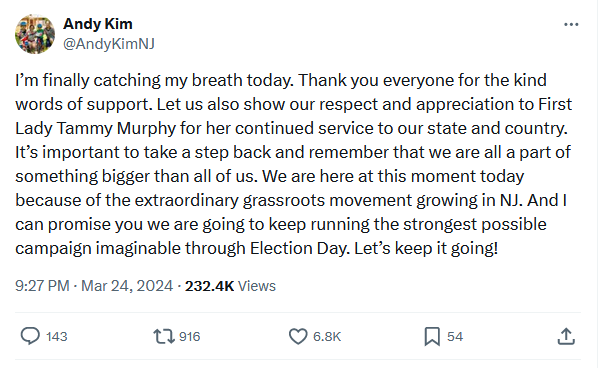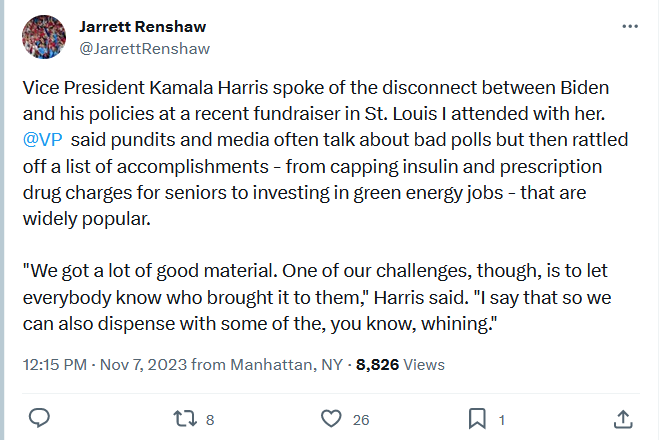BREAKING: Tammy Murphy just announced she’s dropping out of the race for U.S. Senate in New Jersey, which clears the way for Andy Kim to replace Bob Menendez and be the next U.S. Senator from New Jersey. Such great news & such a great person to replace Bob Menendez. pic.twitter.com/bfJH8MtwLZ
— Victor Shi (@Victorshi2020) March 24, 2024
Well we needed 1,000 signatures to get on the ballot NJ…and you gave us 6,000! My team was sure to get them all filed in Trenton and I just want to say a huge thank you to everyone for helping make this happen. Another step forward for our movement! pic.twitter.com/rXqMKPYw2c
— Andy Kim (@AndyKimNJ) March 23, 2024
Among other things, the political news out of New Jersey today means that the Senate seat is likely to go from a man accused of taking gold bars as part of a bribery scheme to a man best known before running for Senate for doing this in the Capitol after Jan. 6 riots/ pic.twitter.com/mIk9SdV1QK
— Edward-Isaac Dovere (@IsaacDovere) March 24, 2024
Good News Open Thread: Andy Kim for Senate!Post + Comments (51)




